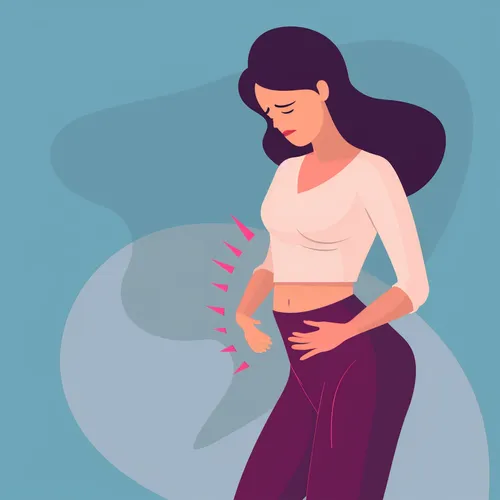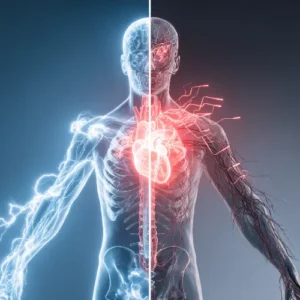What Is Irritable Bowel Syndrome?
Irritable bowel syndrome, or IBS, is a common disorder of the digestive system affecting approximately 1 in 5 people in Britain. While it is more frequently reported by women, this may be due to women being more likely to seek medical attention for IBS symptoms.
What Causes Irritable Bowel Syndrome?
The exact cause of IBS is unknown, but stress and increased sensitivity of the gut are thought to be common triggers. Diet can also trigger IBS symptoms in some people, even if their overall diet is healthy.
IBS symptoms seem to result from an overly sensitive bowel, causing food to pass through the digestive system either too quickly (leading to diarrhoea) or too slowly (causing constipation). This leads to spasms of the bowel muscles, which cause discomfort and cramping pain.
What Symptoms Are Associated With Irritable Bowel Syndrome?
IBS symptoms vary between individuals and can range from minor discomfort to being quite disabling. Symptoms usually begin in the late teens or early adulthood but can occur at any age. Common IBS symptoms that may come and go include:
- Diarrhoea
- Constipation
- Alternating constipation and diarrhoea
- Stomach cramps or abdominal pain
- Bloating after meals, sometimes severe enough to resemble pregnancy in women
- Wind
- Mucus in bowel movements
- Feeling the need to move the bowels but being unable to
These symptoms can indicate other medical issues, so always consult your doctor if symptoms persist, are severe, or if there is blood in the stools.
What Triggers Irritable Bowel Syndrome?
Diet and stress are considered the two main IBS triggers. Certain foods commonly act as triggers, such as:
- Caffeine (tea, coffee, cola)
- Dairy products
- Alcohol
- Spicy foods
- Fatty foods
Smoking can also worsen symptoms. Identifying and eliminating personal trigger foods may help manage IBS. Eating smaller, more frequent meals rather than large meals is also recommended.
How Is Irritable Bowel Syndrome Diagnosed?
There are no specific tests to confirm IBS, as it causes no visible abnormalities. Diagnosis is usually based on ruling out other conditions and assessing symptoms. Doctors will discuss symptoms, possibly conduct a physical exam, and may request a stool sample to check for infection. Further tests like blood work, x-rays, endoscopy or ultrasound may be done to exclude more serious disorders. IBS is diagnosed when other possible causes are eliminated.
How Is Irritable Bowel Syndrome Treated?
There is no cure for IBS, but symptoms can usually be managed through a combination of diet, exercise, and medication. Doctors may recommend an elimination diet to identify trigger foods. Keeping a record of when symptoms occur can also help pinpoint triggers.
Cutting out alcohol, caffeine and dairy while drinking plenty of water may ease symptoms. Oats and probiotic foods like yoghurt are sometimes helpful for wind and bloating. Physical activity helps digestion and stress.
Over-the-counter medications like loperamide for diarrhoea or laxatives for constipation offer relief, while antispasmodics relax the digestive tract muscles. These should not be used long-term without medical advice. Some find homeopathic remedies like peppermint oil capsules beneficial. Applying a hot water bottle to the stomach can relieve symptoms.
If stress triggers symptoms, counselling in stress management or hypnotherapy may help. Although distressing, IBS is not a serious or life-threatening condition and does not damage the bowel.
Photo “IBS” by Anthony Cunningham for Zoom Health
Zoom Health is a leading UK supplier of Home Health Tests and Earplugs





